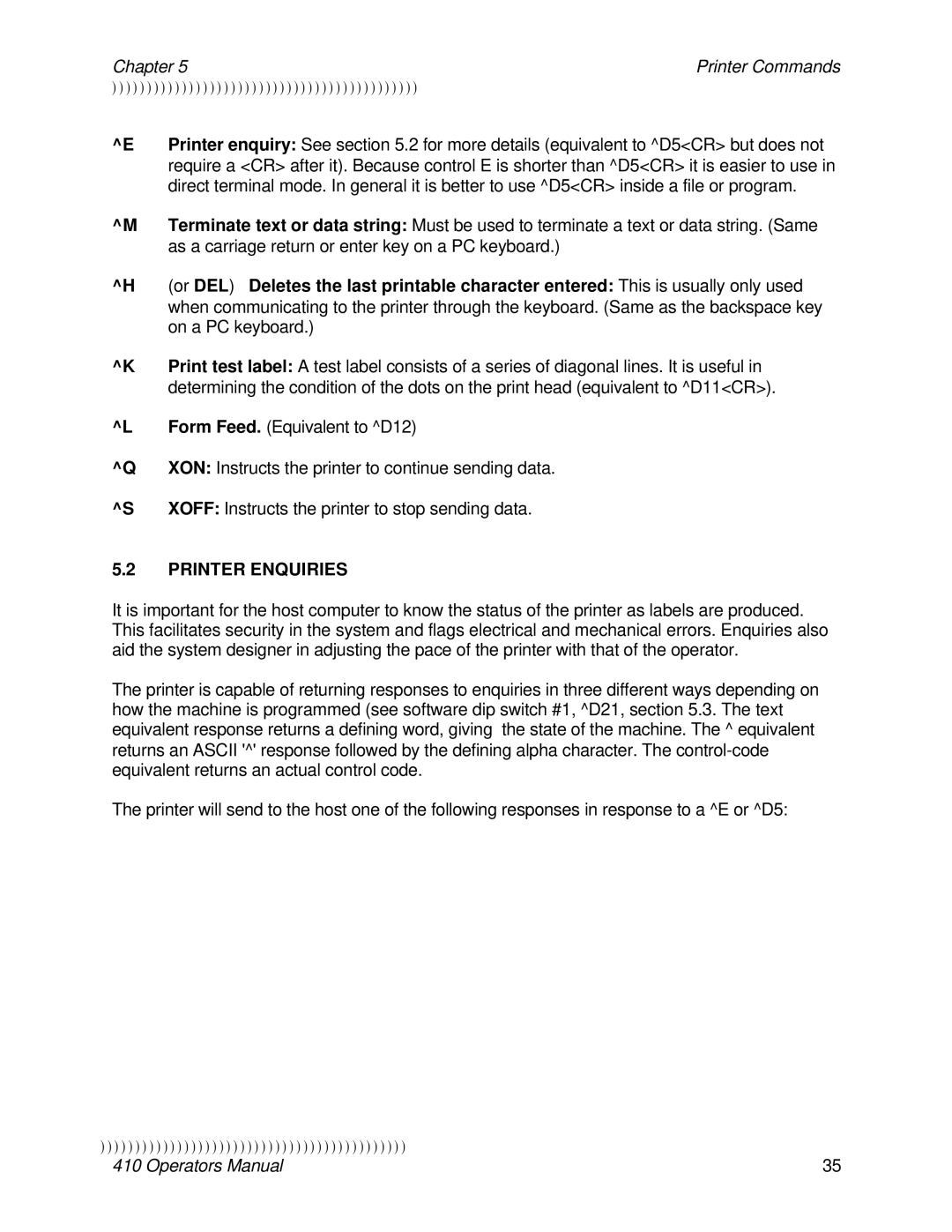Chapter 5 | Printer Commands | |
)))))))))))))))))))))))))))))))))))))))))))) |
| |
^E | Printer enquiry: See section 5.2 for more details (equivalent to ^D5<CR> but does not | |
| require a <CR> after it). Because control E is shorter than ^D5<CR> it is easier to use in | |
| direct terminal mode. In general it is better to use ^D5<CR> inside a file or program. | |
^M | Terminate text or data string: Must be used to terminate a text or data string. (Same | |
| as a carriage return or enter key on a PC keyboard.) |
|
^H | (or DEL) Deletes the last printable character entered: This is usually only used | |
| when communicating to the printer through the keyboard. (Same as the backspace key | |
| on a PC keyboard.) |
|
^K | Print test label: A test label consists of a series of diagonal lines. It is useful in | |
| determining the condition of the dots on the print head (equivalent to ^D11<CR>). | |
^L | Form Feed. (Equivalent to ^D12) |
|
^Q | XON: Instructs the printer to continue sending data. |
|
^S | XOFF: Instructs the printer to stop sending data. |
|
5.2PRINTER ENQUIRIES
It is important for the host computer to know the status of the printer as labels are produced. This facilitates security in the system and flags electrical and mechanical errors. Enquiries also aid the system designer in adjusting the pace of the printer with that of the operator.
The printer is capable of returning responses to enquiries in three different ways depending on how the machine is programmed (see software dip switch #1, ^D21, section 5.3. The text equivalent response returns a defining word, giving the state of the machine. The ^ equivalent returns an ASCII '^' response followed by the defining alpha character. The
The printer will send to the host one of the following responses in response to a ^E or ^D5:
))))))))))))))))))))))))))))))))))))))))))))
410 Operators Manual | 35 |
